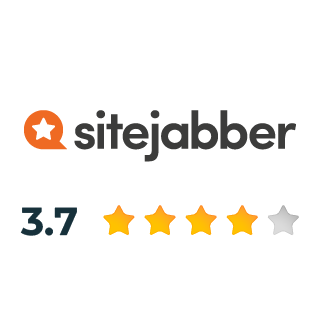Although some companies promote the benefits of outsourcing, others choose in-house staff. It is puzzling how different entrepreneurs’ experiences can be, and it frequently keeps them from choosing wisely.
In this blog post, we’ll examine some of the crucial factors, along with the benefits and drawbacks of each, that a business must take into account when determining whether to build software internally or externally.
What does In-House Vs. Outsourced Solutions mean?
Being in charge of a project requires you to understand the distinction between internal and external labour. In-house execution of a project or assignment refers to carrying it out within the same organization that is assigning the responsibilities. This shows that the original company does work using its own resources, personnel, and time rather than relying on a third party or subcontractor. The organization has more control and avoids misunderstandings by keeping activities in-house rather than hiring a third-party vendor. Even while in-house services may cost more, some organizations prefer them because they fit the corporate culture better.
Outsourcing software development is the practice of an organization engaging a third-party company or resource to complete a task rather than using its own personnel and resources. For many large firms, customer service departments, and well-known brands, this is normal practice. By having its own personnel work on multiple projects while outsourcing what they can, the company is able to multitask while saving money.
In-house development: Why does it work?
Directly managing the development team provides a greater influence over business operations. You may seek candidates who possess the ideal blend of personality, skills, and work methods. The company delegates tasks, schedules demands, and monitors output, guided by a single goal, with staff members supporting the corporate culture. Although such a synergy sounds wonderful, it requires tremendous time and financial resources to accomplish.
Benefits –
Quick iterations:
- You have the ability to quickly construct and break things with in-house product development. So you test ideas rather than just making assumptions about what will work and what won’t.
- As a result, you may assess presumptions rapidly, test various approaches, and alter development plans in response to customer demand.
Deep product knowledge:
- Each team member obtains deep knowledge of the technical complexity of the product as well as a high-level understanding of the business objectives because an in-house development project is frequently a long-term partnership.
- Additionally, it makes it easier for new hires to get up to speed because the existing team can share information with them.
Simplified security compliance:
- The outer boundaries of your security are where you keep customer information.
- The probability of unintended leaks and revelations is decreasing. As there is no requirement to separate sensitive client data from data that may be shared across borders, in-house development significantly lessens regulatory pressure.
Also Read: In-House VS Outsourcing a PHP Developer in India
Operational ease:
- It is simpler to set uniform work standards and practices throughout your firm when working with an outside vendor.
Team cohesion:
- The team works well together, everyone understands the technology and procedures, and everyone is comfortable with each other’s working methods. As a result, production and communication have increased.
When to handle in-house projects?
You want to have complete control over a project:
- When you want total control over every part of the development process, handling a project in-house can be useful.
- With an internal team, you may have immediate control and make changes and choices right away.
- With this degree of control, you may coordinate the project with the particular standards, culture, and goals of your business.
- As team members are easily accessible for meetings, brainstorming sessions, and feedback discussions, internal teams also create seamless collaboration and communication inside your company.
Long-term support:
- If you predict a long-term need for development assistance, managing projects in-house can be a good alternative when comparing developing software in-house vs. outsourcing.
- In this case, creating an internal team enables you to create a committed and cohesive unit that gets to know the systems, procedures, and requirements of your business inside and out.
- They can offer ongoing assistance, upkeep, and upgrades as required, assuring the project’s viability and ongoing development.
- When serious problems emerge, in-house professionals can also provide quicker reaction times and prompt support.
Handling sensitive issues:
- Managing the project in-house may be preferred when dealing with sensitive information, such as private data or client information.
- You can maintain full control over data security measures and ensure compliance with pertinent privacy requirements by maintaining the development process within your firm.
- Strong security policies that are customized to your company’s needs can be implemented by in-house teams, lowering the risk of data breaches or unauthorized access.
What is outsourcing?
IT outsourcing is the practice of working with outside service providers to achieve infrastructure and application development solutions that meet your company’s needs.
If you need “additional working hands” but don’t want to go through the drawn-out employment process, a software outsourcing service company is a great solution. You can cover capacity gaps with the aid of an IT outsourcing partner without spending money on hiring, training, and administrative support.
Vendors create a variety of service models to organize and streamline outsourcing. A successful relationship with a provider depends on making the right choice. In this way, the scope, participation requirements, and financial obligations are all made explicit.
Benefits –
Access to large talent:
- Business executives believe that outsourcing can give them access to unexplored human resources.
- By using this talent pool, you can hire employees with a variety of skills and levels of expertise.
- Finding the right people for your project, whether you need senior professionals or specialized experts, is considerably simpler when you outsource. Why? You are not constrained by location.
Focus on core business:
- By shifting some project components to an outsourcing partner, you can free up more resources for other business endeavours.
Faster time to market:
- You can fill skill gaps, assemble teams that are prepared to work, or even completely delegate project development via outsourcing software development.
- By gaining access to more talent, you can decrease the release time.
Read More: Reasons Why Companies Outsource Software Development
Why is Nimap Infotech a reliable outsourcing partner?
As an outsourcing company, Nimap has a plethora of experience and knowledge. We have a team of highly qualified individuals, and they are well-versed in many different fields and businesses. Their breadth of knowledge enables them to comprehend the particular requirements and difficulties faced by various enterprises, resulting in customized solutions that satisfy your particular demands.
Nimap Infotech offers a comprehensive solution for businesses to make informed decisions in-house vs. outsourced solutions, thereby enhancing efficiency and growth potential.








































